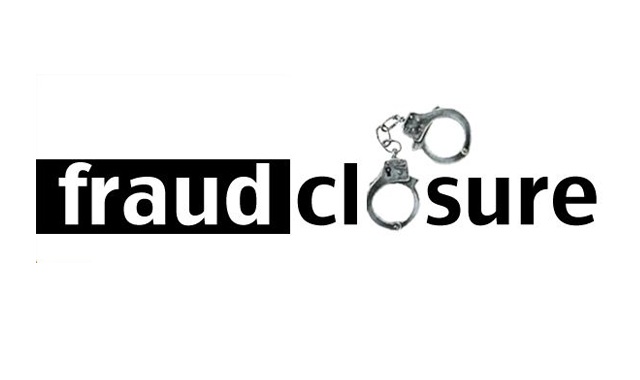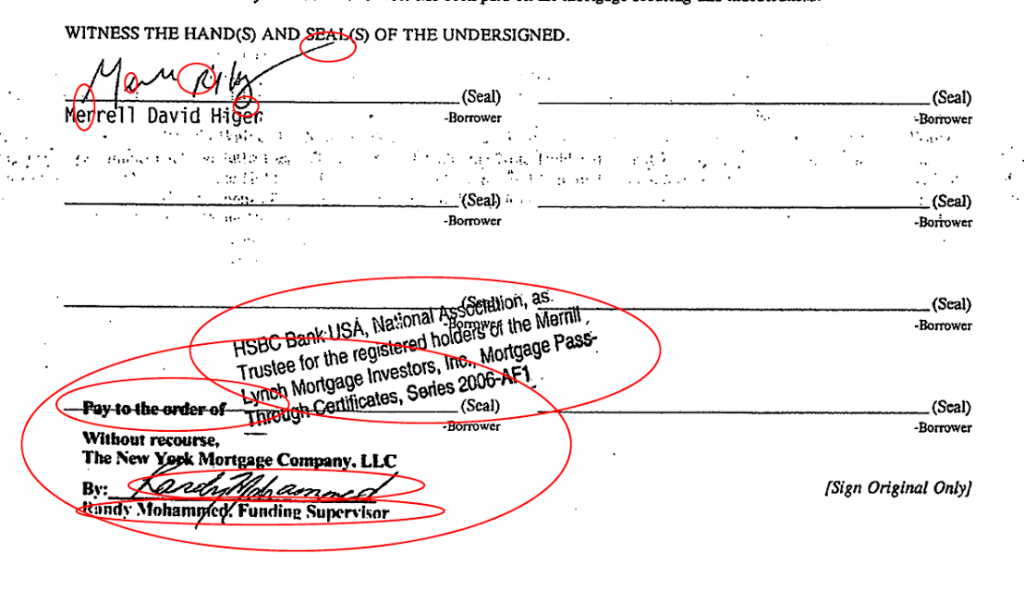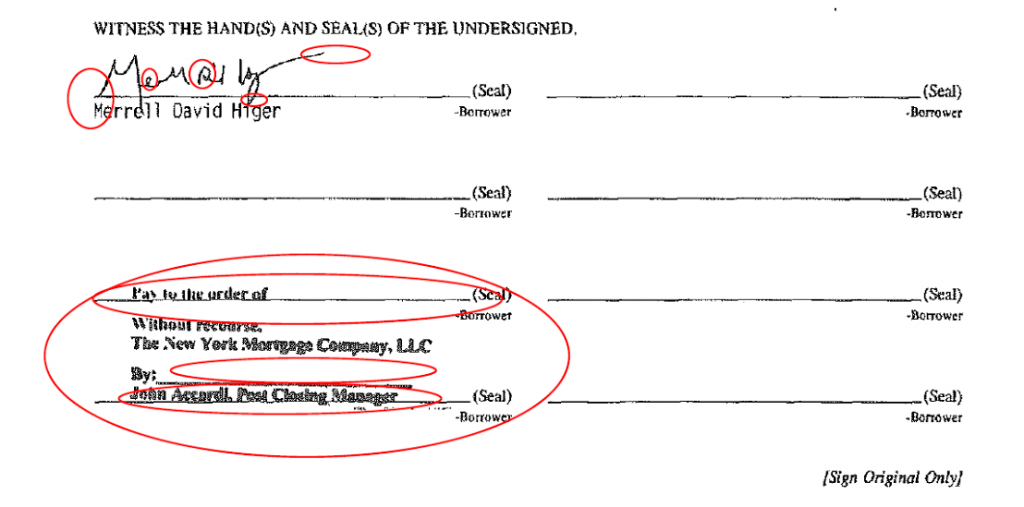
Law Offices of Evan M. Rosen Wins Foreclosure Trial Based on Fraud on the Court
Cross-posted from The Law Offices of Evan M. Rosen
A few years ago, great lawyers, who are pioneers in our field, tried to blaze a trail alleging fraud in a foreclosure case. The case went all the way up to the Supreme Court of Florida. In the final written opinion, despite finding that “many, many mortgage foreclosures appeared to be tainted with suspect documents,” the Court ultimately held that since the bank didn’t get away with it, it’s not fraud. Pino v. BNY, 121 So.3d 23 (Fla. 2013). The Court wouldn’t even commit to stating that sanctions would be warranted for the bank’s attempted use of fabricated evidence! Id.
Before the case reached the Supreme Court of Florida, Justice Polen, who, relaying the words of Justice Farmer wrote, “[d]ecision making in our courts depends on genuine, reliable evidence. The system cannot tolerate even an attempted use of fraudulent documents and false evidence in our courts. The judicial branch long ago recognized its responsibility to deal with, and punish, the attempted use of false and fraudulent evidence. When such an attempt has been colorably raised by a party, courts must be most vigilant to address the issue and pursue it to a resolution.” Unfortunately, this was the sole dissent in Pino when it was before the lower level, Fourth District Court of Appeal. Pino, 57 So.3d 950 (Fla. 4th DCA 2012).
Ever since the Supreme Court handed us the Pino decision, I have not mentioned the word “fraud” in a foreclosure case. Not because I don’t believe it exists or because I agree with the Supreme Court over Justices Polen and Farmer, but rather because ultimately, I believe raising fraud does not help our cause but instead hurts it. I will go so far as using “false documents,” when warranted but when it comes to “fraud,” I believe it is far more effective to lead the judge up to that without saying it. Pointing out the facts and law, as a devoted professional, with limited ire, is far more effective. With this approach, I have recently watched two judges raise fraud all on their own (one of which was the impetus for this post).
During a recent trial, I published the following evidence to the Court:
From Note attached to complaint and provided to me in 5 sets of pre-trial exhibit disclosures
(Note 1):
Top of page 1:
From Note attached to the Bank’s 6/4/15 Response to Request for Production and lost note affidavit filed on 7/13/15
(Note 2):
Top of Page 1:
I also informed the court that the Bank’s Request for Admissions response #10 says that Note 1 is a true and accurate copy. The Complaint is also verified to be “true and accurate” and the bank pleads that they are the holder (i.e. in possession and payable to blank or to the Plaintiff). Yet, the Plaintiff is CitiMortgage and the Note attached to the complaint (Note 1) was specially indorsed to a trust. Meanwhile, the Lost Note affidavit states Note 2 is a true and accurate copy and Bank’s Response to Interrogatory #7, filed in early June, claims the note is at HSBC in New York City and is not lost!Despite my and the Judge’s clear warning of where this was headed, opposing counsel failed time and time again to recognize the severity of the situation. Finally though, after the court threatened the bank’s attorney and bank with an evidentiary hearing on the Court’s own motion for fraud on the court to dismiss the case with prejudice so that the bank could never sue again, the bank took a voluntary dismissal.
BANK LAWYER: Your Honor, at this point the Plaintiff will voluntarily [dismiss] the action so we can clean the issues and refile the case.
I can only imagine what he means by “clean the issues”…
Full Transcript of Pre-Trial and Trial here: 2015-07-14 – Transcript – Pre-Trial and Trial
~





Guys we are missing a very big point, even though the judge caught them in FRAUD they were not charged and all that happened was that they put their tails between their legs for a mere second and get a chance to FIX the FRAUD with more FRAUD and refile. The judge should have dismissed it with prejudice and given the attorney for the plaintiff 30 days in jail, right away!
Then asked for the States attorney to seek further charges, BUT NOOOOO! if this would have been some regular home owner who filed some fraudulent papers he would have been pillaged
& R@ped by the judge. This whole system is soooo corrupt.
well said Alonzo, they do not deserve a second chance. Sorry Evan, you maybe trying hard in the local court and if its broward, they don’t care. At least we know there is one honest lawyer out there and good point, don’t refer to it as fraud to the judge even though it clearly is. We know you have to stay on the judges good side. The odds are not favorable for honest people.
Urgent. Please let me know who are the ethical, very effective, and most affordable law firms in the Houston, TX area to fight Foreclosure Fraud?
This is absolutely wonderful that Evan Rosen has had a win, but……out of his total caseload what percentage does this account for? Sadly, this does not happen often and money talks and bullshit walks. What normal consumer has the wealth to pay for such exorbitant legal fees for a case to the State Supreme Court? You have as much chance of that happening as you do for running for a political position. I’ve been fighting since 2007 and just when we get to the point of depositions the law firm representing Chase goes out of business. No depo’s and now we wait (again) for the newly appointed law firm to start the whole BS all over again. This is my farewell message to Ronald Wolfe & Associates (who used to be Florida Default Group) – GOOD RIDDENS. The 200+ attorneys on staff are hopefully now unemployed and soon facing their own foreclosures!!!! I give a HIP, HIP, HORRAY to Rosen’s law group for continuing the battle with some of this state’s F-Troop law firms still remaining.
IN BERGEN COUNTY NJ COURT JUDGE GERALD ESCALA WILL RUBBER STAMP THE PAPER WORK FOR THE BANKSTERS EVEN IF HE SEE FRAUD ALL OVER THE PLACE
HE HAVE BEEN DOING THIS FOR YEARS,DENYING DUE PROCESS OF LAW TO HOMEOWNERS,IGNORE FACTS AND EVIDENCE AND SIMPLY WORK WITH THE BANKS TO STEAL HOMEOWNERS HOMES.ALL THIS IS DONE WHILE THE STATE OF NEW JERSEY
DOING NOTHING TO HELP ANY OF THE VICTOM HOMEOWNERS
Claire, I had Judge Escala, I did not stop paying my mortgage, I was invited to modify by EMC, that is were this so called loan took on 42 street. I went from WAMU to EMC to Nationstar then Selene all within 36 months (bait and Switch). I had to do a QWR to see who owned the loan , Everyone sent me a copy of my original note except Nationstar they sent one made by DOCX LLC now closed for fraud.I also found that my loan went into Maiden Lane Asset Backed security 2008, 5 years after the closing not ninty days, I also found robo signing, chicken scratch writing, it was like opening into a world that I never knew about.
After testifing all of this including that Nationstar, Selene and DLJ were not in the clerks office and I had lawyers run Title searchs as well, loan still showed it was owned to EMC. I had an expert testify that Selene- DLJ had a forged note. Escala gave the home to DLJ, leaving my original note out there and myself still liable for it.
DLJ never answered discovery at all, they never showed any type of ownership to this loan, in the Bergen county clerks office or to my lawyer or at trial. Escala leaves a mess and clouded Titles and really hurts the wrong side.
It absolutely kills me that we ILLEGALLY LOST OUR HOME and the MA Foreclosure Laws MGL ch 244 sec 14 were not complied with and we had no knowledge. #% days later when we got a 72 hour Notice to Quit we retained a lawyer and filed a lawsuit and in under 1 year we paid over $35,000 in legal fees! Who has the money to pay legal fees if they are in arrears in their mortgage? Our Judge was UNETHICAL and we later found out had a conflict of interest because his wife was involved in the #1 Bank involved in Illegal Foreclosures. We then found out that our Lawyer was a wolf dressed in sheep’s clothing. I did all the work for him because I had a complete trail of all the payments made and never credited and the proof of an INVALID LOAN and FRAUD since ORIGINATION. My health has gone downhill because of the stress and I will not give up until my story is exposed and I can help other victims. Our home was paid off in full and I know people who have not made a mortgage payment in over 4 years and are living rent free! You tell me what is wrong with this? Proof and truth will win in the end. One of the guilty parties has already committed suicide because he couldn’t live with the truth after I confronted him. His wife is not going to expose the truth cause she will lose her home. HOW do these people sleep at night?
They are fiction. Fiction don’t think, sleep, heart, common sense and eat and lastly can’t sent to jail because its being REPRESENTED by their own fiction..
Concerned21 – You may want to contact the Worcester Anti-Foreclosure Team (WAFT)… these folks are a volunteer non-profit organization that assist Massachusetts-based illegal foreclosure victims in their fight for justice. They do not charge any money and are very knowledgeable and pro-active in attempting to improve Massachusetts laws and litigation. There are no guarantees when fighting for justice, but the more folks who stand up to assert their rights, the more likely justice shall prevail. WAFT’s phone number is 508-614-9238. Here’s a link for an article reviewing one of their success stories: http://www.golocalworcester.com/news/worcester-anti-foreclosure-team-wins-landmark-legal-case
An affiliate organization that is also helpful is the Massachusetts Alliance Against Predatory Lending (MAAPL). Here is a link for more information about MAAPL: http://maapl.info/
I am so sorry to hear what you have been through, but it is a story I have heard before including my own. After I discovered my foreclosure lawyer was working for BoA instead of me, me and other he defrauded moved for his disbarment. He was subsequently disbarred by the A.R.D.C. in Illinois. I then had to fight my illegal foreclosure pro se. I was also making my payments, but BoA was not applying them to my account. I have the evidence in the form of BoA payment history. In May of 2014, intruders come into my house and stole my foreclosure defense files, but did not get copies of the payment history. Then I learned the chancery judge had been bribed by his rejection of the fraud, based payment history. I quickly filed for chapter 7 bankruptcy, and then a chapter 13 to keep them from selling my home. Illinois courts are not allowed to aid fraudsters. The chancery judge was aiding and abetting criminal activity. One must have a set to own a home these days. Our government is not effective in combating this fraud. How do these jerks sleep at night? Evil begets evil. Let us see how they sleep spending eternity in Hell.